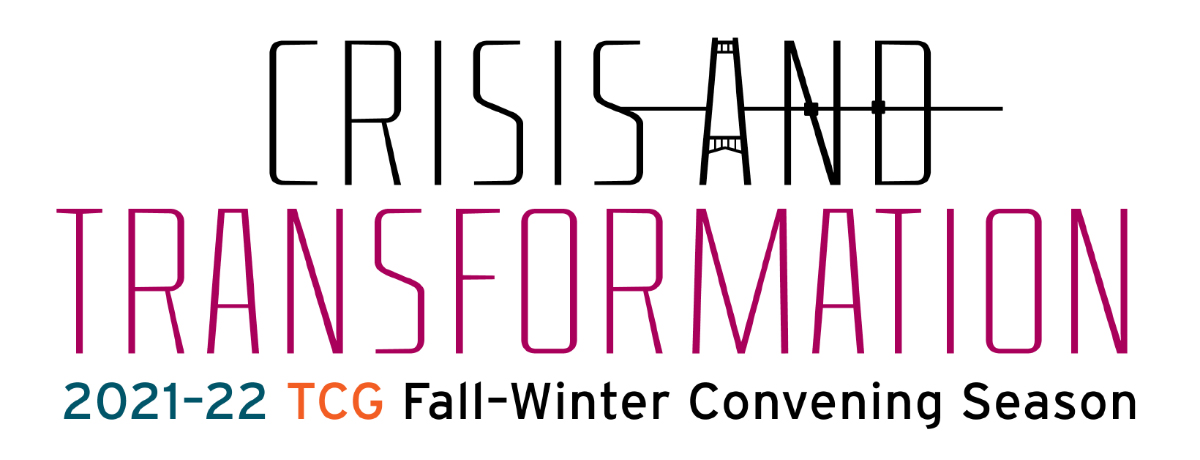
Join us on December 9th from 1:00-4:00pm ET/10:00am-1:00pm PT for our next virtual summit, Climate Action in a Global Landscape. The goals of the summit are: strengthening support for Indigenous-led climate resistance; deepening participant understanding of how the goals of the Paris Agreement can be activated at their theatres; and committing to sustained climate action at the personal, organizational, and fieldwide levels. Please join us and theatre practitioners across the country in committing to bold and sustained climate action. REGISTER HERE.
SESSIONS INCLUDE:
Committing to Climate Action as a Theatre Artist: There was one piece of theatre featured as part of the official line-up of COP-26 - Can I Live? written and performed by Fehinti Balogun, a familiar face of stage and screen (I May Destroy You). We'll kick the Summit off hearing from Fehinti about his journey to dedicating himself to climate justice through his work and prominence as a theatre artist.
The Culture of Indigenous-Led Climate Resistance: A recent report found that Indigenous-led climate resistance is responsible for stopping or delaying 25% of pollution emissions in the U.S. and Canada. Yet in spite of that effectiveness, Native and Indigenous leadership is rarely centered in settler climate action, or in a majority of theatres. Given that ceremony, music, performance, and cultural practice is at the core of Indigenous climate resistance, theatres could be ideal partners in amplifying their leadership. Indigenous climate activists Reverend Houston Cypress (Miccosukee), Sachem HawkStorm (Schaghticoke), and Cherri Foytlin (Diné) will discuss how culture practice informs their activism, and how theatremakers can support their work. This session will inspire attendees to consider their own cultural practices and how they must shift toward climate action and environmental justice.
From the United Nations to Theatre Nation: Connecting COP26 to Our Work Today: In this session we'll begin to draw lines between the Paris Agreement, COP26 and our theatre industry, using the framing of the existing UN agreements to name some goals for our field. We'll also hear from artists, cultural workers, and UN representatives who had a front row seat at COP26 to share takeaways and how they personally connect those takeaways with people in arts and cultural roles. How might our work pick up the baton from world leaders? How might we support forward movement in global climate action both in reducing our carbon footprint as an industry but also in cultural power? Speakers include Ana Maria Kleymeyer, Climate Attorney for the UN and Xavier Cortada, climate artist and professor of practice at the University of Miami Department of Art and Art History.
Climate Action Breakout Rooms: These sessions will help us move the plenary conversations into action through three breakouts:
- DIVESTMENT: At our last Climate Summit in April, we heard from Groundwater Arts about their Divest to Invest campaign. Now, we’re ready to put that commitment into action by hearing from Anna Raginskaya of The Blue Rider Group, Morgan Stanley on investment strategies that prioritize environmental impact.
- CARBON BUDGETING: If we’re going to cut down greenhouse gas emissions by 52% by 2030 to reach the Paris Agreement goal of 1.5°C, we must be able to measure our progress. Vijay Matthew of HowlRound will share resources and approaches to carbon budgeting for theatres.
- ARTISTRY: If, as Toni Cade Bambara wrote, “the role of the artist is to make the revolution irresistible,” how must our artistry expand to catalyze our communities toward climate action and regenerative relationships with the land and each other? Join Lanxing Fu of Superhero Clubhouse, a NYC-based company that has harnessed theater to serve the climate and environmental justice movement for 15 years, to discuss the many ways theatres and artists can bring climate action into their theatre-making.
We'll wrap the Summit up with some clear steps we all can take, with whatever power we have in hand, to work in response to the climate crisis in our lives, in our communities, in our organizations, and in our field.